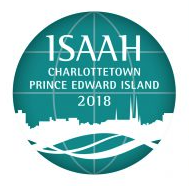QASH Special Session
QASH: Quantitative Atlantic Salmon Health will hold a special session at the 8th International Symposium for Aquatic Animal Health on Wednesday, September 5, 2018.
Deadline for submission of Abstracts is May 31, 2018 – Deadline extended to June 15th.
The QASH initiative is a cooperative effort between salmon scientists in Norway, Scotland, Chile, and Canada. QASH aims at developing a globally applicable “Quantitative Atlantic Salmon Health” tool as a management and certification tool based on objective measures of health and robustness.
The QASH team is seeking abstracts for a workshop being hosted on Wednesday, September 5th at ISAAH 2018, addressing industrially applicable and empirically validated candidate indicators of health and robustness in farmed Atlantic salmon across the globe. This QASH session aims to clarify which benchmarks we have, which bottlenecks are closest to being resolved and which assessment “packages” are most promising to monitor and ensure longterm health in farmed salmon. The outcome of the workshop will result in a proposal for a larger multinational project examining and applying the results in the major salmon producing countries.
For the purposes of the workshop, Quantitative Atlantic Salmon Health includes such topics as: Verifiable allostasis or homeostasis; measures of recovery from health challenges; robustness of barrier tissues; impacts of feed and “functionality”; thresholds and meaning of qPCR results; breeding programs and heritable health; behavioural ranges and indicators of behavioural constraints; other tools to monitor health which have threshold values (weight, growth, appetite, coloration); environmental interactions; requirements for industrial application on farm, pre- processing or in certification schemes.
Some factors to consider include: threshold values, time to generate results, options to respond to a poor result, sampling protocol requirements, reproducibility of results, level of biological organization tested, cost of testing, ease of testing, industrial constraints, and economic impact.
Priority will be given to abstracts which outline, apply and evaluate candidate indicators or benchmark values.

